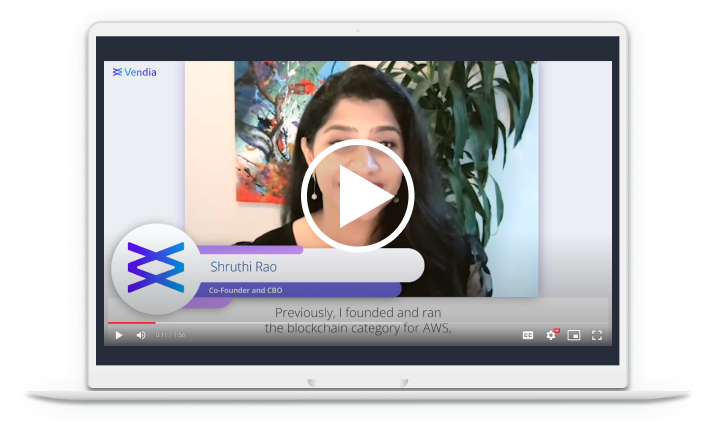Creating a culture of learning
As many leading technology companies know, a learning culture drives higher software delivery and organizational performance. To truly establish a learning culture, an organization must embrace their set of shared attitudes, values, goals, and practices — the qualities that characterize them as an institution..
The 2014 State of DevOps Report found that "[c]ultural practices and norms that characterize high-trust organizations — good information flow, cross-functional collaboration, shared responsibilities, learning from failures, and encouragement of new ideas — are the same as those at the heart of DevOps." Almost a decade later, those same practices and norms are equally relevant to establishing a learning culture, and it's no surprise that most organizations that embrace a DevOps culture inherently embrace a learning culture.
At Vendia, we're actively and intentionally creating a learning culture. This is a ground-up undertaking. It starts with our values and ends with a feedback loop as we export what we've learned to others. Here's how it all comes together.
Trust
Vendia's values are the foundation for our culture of learning. Each value plays a role in establishing the environment in which a shared appreciation for learning can take hold and where collaboration, experimentation, and feedback are the norm.
Trust is our most important value, especially when it comes to learning. Teams that trust each other have the psychological safety necessary to feel confident that no one on the team will embarrass or punish anyone else for admitting a mistake, asking a question, or offering a new idea. After all, stress is a learning inhibitor, and teams without psychological safety are unable to learn as quickly and effectively as those with it. Learning starts with trust, and we work hard as kind humans to create and deepen trust at Vendia.
Collaboration
Once trust is established and psychological safety is in place, teams can begin to work together to share what they know and experiment together. There's a high level of expertise across the organization, which is an invaluable resource as long as it's fully leveraged. A learning culture values collaboration to find new ways of doing things. A learning culture also seeks feedback from experts from different backgrounds and its community members learn from each other.
Feedback is an important part of collaboration, and getting feedback can be painful if not given or received in the right way. But, when done well, feedback is a powerful organizational tool. It provides a channel through which teams share cross-functional expertise and attempt new experiments. Collaboration with peers is an important part of our culture at Vendia.
Curiosity
Organizational curiosity has been shown to improve team performance and employee job satisfaction, and a learning culture celebrates curiosity. We hire curious people and we give them the time and tools to make the most of their curiosity. We also encourage questions, knowing they come from a place of curiosity and good intention. For example, our Engineering team has established a journal club that meets regularly to discuss deeply technical topics. Anyone is welcome to join to read papers, share ideas in a setting filled with learners, and ask questions (including tough questions) of each other.
There's also a large element of personal responsibility required for continuous learning. Having the self-awareness to acknowledge personal growth areas and the motivation to address those gaps directly is another key to thriving learning culture. That's where our Responsibility Vendia value shines. We know that curious, happy, and responsible employees will take ownership of their own learning journey and help others do the same.
Innovation
While we all have valuable past experience to share with others, we're equally curious about what's actively happening outside of our organization. This is where our Vendia values of Ingenuity and Growth shine. With Ingenuity we get, curiosity [that] blooms through a willingness to experiment and learn, continuously. With Growth we understand a business cannot grow in a healthy, sustainable fashion if individual team members don't feel they can grow, too.
Fortunately, there's no shortage of innovation at Vendia. Whether it's combining approaches (like serverless and blockchain) to create a new and novel platform or improving that platform with leading research from academia, leveraging the best of what's happening outside of Vendia is a key aspect of our culture.
Sharing with others
There are countless examples of Vendians sharing what they know with others. Those examples include sharing experiences to an external audience, giving back through open source, and providing thought leadership around the changes we're actively enabling and observing from our customers. For example, the Vendia SA team hosts a monthly Customer Solution Sharing Session where the entire company is invited to learn more about customer use cases and experience working with Vendia Share. It's just one of many ways we encourage learning and connection in a remote-first environment.
Creating your own learning culture
A learning culture is imperative to sustainable, long-term organizational success. Building that culture takes time and effort, but with the right people and the right support it's certainly possible to do the same as we've done at Vendia. As with any organic and iterative process, relying on the Plan Do Study Act formula is a great way to get started and mirrors at the organizational level the learning that can be encouraged at an individual level.
If you're just getting started on creating a learning culture in your organization, here are several great resources to help you get started:
- Harvard Business Review (HBR) with 4 ways to create a learning culture on your team
- More from HBR with the timeless Building a learning organization
- McKinsey with Building a learning culture that drives business forward
Happy Learning!
Join Vendia’s culture of learning
And if you’d like to learn more about our culture of learning, follow Vendia on LinkedIn, or explore our careers page with all the current opportunities.






